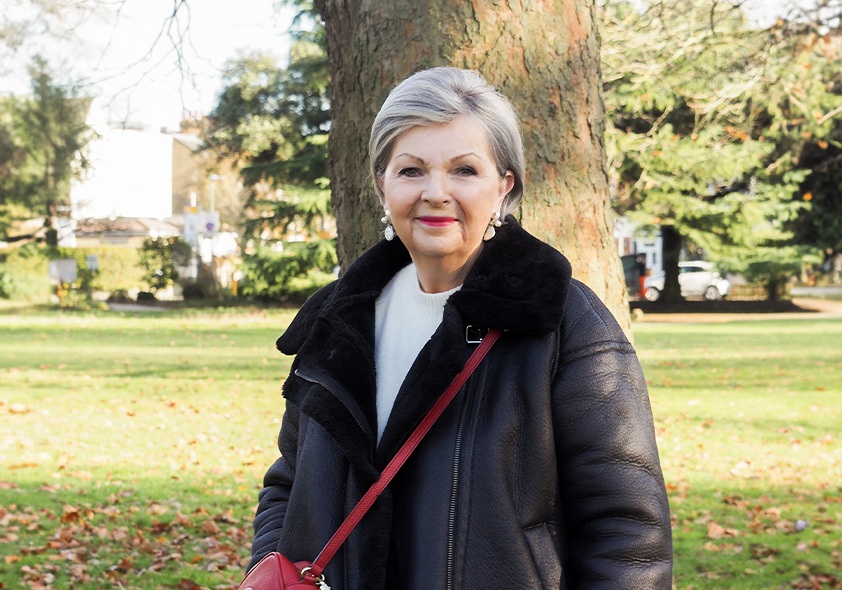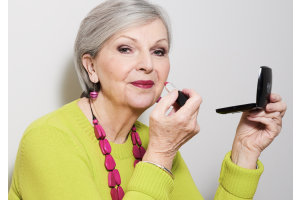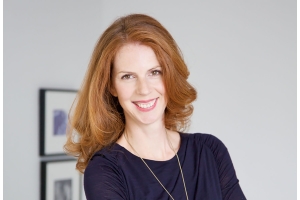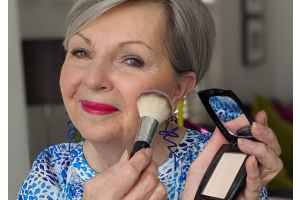
More bossiness this week. More evidence based suggestions for how to live well for longer. More tips from an expert about how and why we need to make certain lifestyle choices which could mean the difference between a robust or a frail old age.
I feel the need to apologise, because I hate being told what to do. But I have your best interests at heart and hopefully, like me, you are also open to the latest knowledge derived from research.
This comes from Janet Lord, Professor of Immune Cell Biology at the Institute of Inflammation and Ageing at Birmingham University. Once again she is in conversation with Dr. Michael Mosley and I have given you the link below* if you want to hear their fascinating discussion for yourself.
It occurred to me that if a whole institute has been formed and funded to study inflammation and ageing, then it must be quite important. Like you, I am ageing as part of a massive cohort of people born in the late 40s and 50s. We may well be the longest lived generation ever, but we are not ageing without suffering from disease. Professor Lord cited a study of older people in the Queen Elizabeth Hospital in Birmingham which showed that 70% of these patients had multiple morbidities, including arthritis, diabetes and heart disease all of which are linked with very few exceptions to inflammation in the body.
Which begs the question - what is inflammation and why is it so damaging especially the longer we live? Inflammation is the activation of the immune system in the body. Acute inflammation is protective as it helps us to heal from injury and fight infections. Chronic inflammation is another story. It damages our blood vessels causing heart disease, strokes and dementia and it also leads to insulin resistance which makes us prone to diabetes. That’s the bad news. The good news is that only 20% of the tendency for chronic inflammation is genetic, so 80% is not and that is why lifestyle choices can have the greatest impact.
Professor Lord’s Five Top Tips to Counter Chronic Inflammation
1- Don’t be Too Sedentary.
The very worst thing you can do is to sit comfortably without moving for long stretches of time, which is a huge wake-up call for me. The reason is that muscle movement regulates and educates the immune system. So all movement (including standing) activates our muscles and that movement is anti-inflammatory. Lord suggests never sitting for longer than an hour at a time. I have started to set a timer on my phone so that I know that I must move around for at least 5 minutes after 60 minutes spent at my computer or watching TV. I have been kidding myself that sitting all day and then going on my exercise bike whilst I watch Pointless on TV is the way to stay fit, but now I know that this may do little or nothing to reduce inflammation.
2- Fasting/Caloric Restriction.
I personally think this is the hardest to do of these five suggestions. It's based on very many studies that show that eating fewer calories than your body needs every day leads to less body fat which prolongs life via reduced inflammation. Okinawans in Japan are some of the longest lived people on earth and have a very low incidence of heart attacks and falls. Most of them have followed a traditional diet which leaves their bodies very lean. Interestingly, the children of all these centenarians are not faring so well, thanks to their more Westernised diet. There are a few ways to become more Okinawan. Every day you could eat a bit less than you need to in order to fully sate your appetite (i.e. always leave some food on your plate). Alternatively you could eat normally for 6 days and fast for one day a week. Or, at the very least you could do what I try to do and leave a long ‘resting period’ between your evening meal and your breakfast. I aim for a minimum of 14 hours, although Professor Lord suggests that 16 or 18 hours is even better.
3- Life Long Exercise.
As I wrote a whole blog on the latest thinking last week, I’ll just reiterate why exercise is central to the reduction of inflammation. If you do your 10,000 steps a day or you are (say) a lifelong cyclist you will likely have very little age-related inflammation. For instance, from the age of 20 the thymus starts to shrink which is a problem because of the role that the thymus plays in making white blood cells called T cells. These are an important part of the body’s immune system. A study of regular cyclists aged between 55-79 showed that they had the same output from their thymus as 20 year olds. And don’t be put off by the notion of ‘lifelong’. It’s never too late to start an exercise regime and whatever exercise you do will help to reduce that damaging inflammation.
4- Reduce Stress.
I have started to think of inflammation a bit like lighting the gas under a pan to bring it to the boil. Movement, activity, and exercise turn the flame down, more food than you need and sitting still for long periods turns it up. And you can imagine how too much stress gets that pan to boiling point really fast. Why? Because we counter the effects of the stress hormone cortisol much less effectively the older we get due to a decline from age 30 in DHEA (Dehydroepiandrosterone ), a protective hormone produced by our adrenal glands. Cortisol suppresses the immune system, so if an older person is suffering stress due perhaps to a bereavement or a fractured hip, then their likelihood of infection goes up dramatically. Best stress busters are to maintain good social support networks, practice meditation with deep breathing, and (as ever) exercise can make all the difference.
5- Mediterranean Diet Plus.
Happily for your sanity, all three of my ‘Living Longer, Living Better’ blogs this month have been singing from the same hymn sheet when it comes to the foods which will support our bodies optimally. They will also help to reduce inflammation in the body. Leonie Wright suggested a wide variety of whole foods and Professor Lord’s research shows the benefits of what she calls the Mediterranean diet plus, high in fish, fruit, vegetables and olive oil, with the addition of nuts and berries, both of which are excellent ways to reduce inflammation. Mosley and Lord also stress the importance of the gut biome. A healthy gut biome is created by the ingestion every week of a wide variety of plant based foods. This prevents the build up of bad bacteria and a leaky gut both of which drive inflammation.
Listening to this new series of longer podcasts from Dr. Michael Mosley about health and wellbeing has been an excellent way to kick start my new year. I do hope that it has given you food for thought too. I consider myself to be reasonably well informed already, but a few of the top tips have shown me areas for real change, particularly the advice about continuous activity and movement - I am currently waiting for my phone to ‘ping’ to tell me that I need get off my backside because I have been sitting at my computer to write this for way too long!
Five minutes on my exercise bike should help to pep me up, lift my mood on a grey January day and make me feel more alive. And that, surely, is what we all need and want.
*https://www.bbc.co.uk/sounds/play/m001v3wq Discussion on Inflammation Dr. Michael Mosley and Professor Janet Lord.
Tricia x
Watch Our Latest Video...
Golden Globes 2024 Naomi Watts Inspired Tutorial
Sally shows you how to achieve a red carpet makeup look inspired by actress Naomi Watts from the Golden Globes 2024...
Upcoming Events:
Friday 2nd February


Film Club: Fargo
Available on Amazon Prime
Watch the film beforehand and join us for a group discussion!
Day: Friday 2nd February 2024
Time: 4 pm
Link: https://us02web.zoom.us/j/86109288705?pwd=TUgzQW5IK0VnUGI2MGdtb0FQN3hxZz09
Meeting ID (if needed): 861 0928 8705
Password (if needed): LOOKFAB
Monday 5th February


Makeup Magic - All About Eyes: Enhancing Your Look with Eye Makeup
Join us for a Makeup Magic with LFF Founder Tricia Cusden and our resident MUA Sally!
Day: Monday 5th February 2024
Time: 11 am
Link: https://us02web.zoom.us/j/
Meeting ID (if needed): 864 7236 6028
Password (if needed): LOOKFAB














